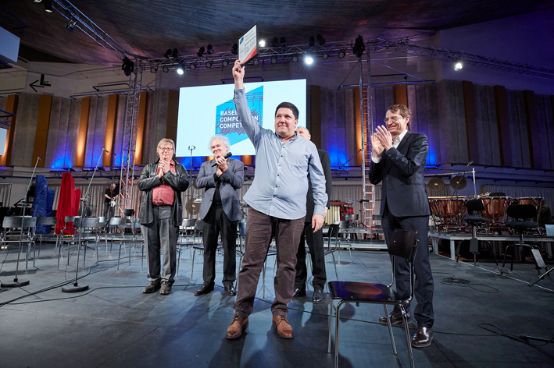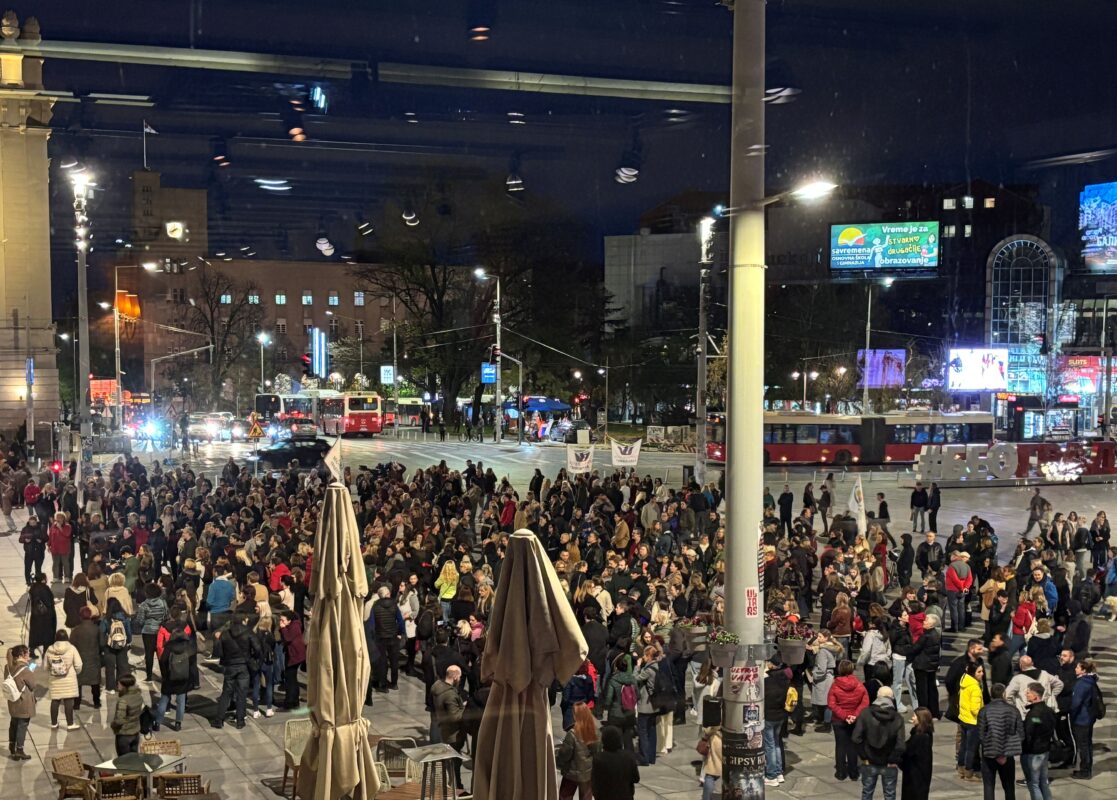The very latest music on the test bench
The first edition of the prestigious Basel Composition Competition took place from February 16 to 19, 2017. The Basel Chamber Orchestra and the Basel Symphony Orchestra performed the ten works that made it to the final. Compositions from Mexico, Italy and South Korea were awarded prizes.

There are various ways of awarding prizes for outstanding contemporary compositions: In the USA, for example, the Grawemeyer Award for Music Composition awards an annual prize of 100,000 dollars to a work that already exists and has already been performed or recorded. However, it is also possible to organize a composition competition that specifies the instrumentation and duration of the work and is reserved for a particular nationality, age group or gender.
It was the idea of Christoph Müller, one of Switzerland's most active concert managers, to launch the Basel Composition Competition (BCC), a competition for unperformed works for chamber or symphony orchestras lasting no more than 20 minutes. The BCC was organized by Müller's agency Artistic Management GmbH. The Paul Sacher Foundation in Basel made its expertise available, but did not support the competition financially, which would have been incompatible with the foundation's purpose. The competition was not subsidized by the public sector either; instead, funding was provided by private individuals and foundations. The high prize money of CHF 100,000 - divided into CHF 60,000 for the first-place winner, CHF 25,000 for the second-place winner and CHF 15,000 for the third-place winner - was certainly one of the reasons why around 450 works were submitted, a figure that surprised even the organizers.
150 from 450
Christoph Müller and his colleagues managed to put together a competition jury with some illustrious names. The members were Wolfgang Rihm (president), Felix Meyer, director of the Paul Sacher Foundation, Oliver Knussen, one of the leading English composers and conductors, the Swiss composer Michael Jarrell, professor in Vienna, Matthias Arter, solo oboist in the Basel Chamber Orchestra, and Soyoung Yoon, first concertmaster of the Basel Symphony Orchestra. Unfortunately, Rihm and Knussen were unable to take part due to illness. At the last minute, another important contemporary composer, the Austrian Georg Friedrich Haas, who now works in New York, was recruited as a jury member, while Michael Jarrell took over the chairmanship.
The fact that a single composer, the Basel-based Andrea Scartazzini, not an actual jury member, reduced the 450 entries submitted to the jury to 150 is not without its problems. Although Christoph Müller makes no secret of the fact that the jury president defines the aesthetics of the works selected and awarded prizes, it is surprising that none of the works performed in the three competition concerts came from the USA, Great Britain, France, Finland or an Eastern European country, even though compositions from these countries make up a very significant proportion of contemporary music performed worldwide.
10 out of 150
For the listener, it was in any case a rewarding, albeit strenuous, undertaking to listen to the concerts in the large foyer of the Theater Basel. The music city of Basel can be proud of the fact that it has two ensembles, the Basel Chamber Orchestra (KOB) and the Basel Symphony Orchestra (SOB), which can make even the most complicated modern scores resound. The two conductors Franck Ollu, who rehearsed seven works with the KOB, and Francesc Prat, who rehearsed three works with the SOB, played a significant role in the well-prepared interpretation of the ten selected pieces.
The BCC wanted the composers to give a short introduction to their work, and descriptions of their works were also printed in the informative program booklet. Once again, however, it turned out that most authors are unable to express themselves clearly about their work, and the published texts are often not free of unintentional humor. On the other hand, it was an excellent idea of the organizers that the composer and the composers introduced school classes to their work in advance and were thus presumably able to convey a particularly authentic approach to the young people.
3 out of 10
At the last competition event on Sunday morning, both orchestras played the three prize-winning pieces in front of a somewhat larger audience. As always, it was interesting to encounter the works a second time, even if they were not necessarily the compositions I had given the best chances. Michael Jarrell said at the award ceremony that it had not been difficult for once to determine the order of the top three. The 1st prize in the Basel Composition Competition went to Víctor Ibarra from Mexico, born in 1978, with In Memoriaminspired by a work by the Catalan painter Antoni Tàpies as well as the death of his mother and the birth of his first son. The expressive work, in which the composer "explores the opposites that characterize our lives: Beginning and end, joy and sorrow, fullness and emptiness, life and death ...", seems to me, with its woodwind multiphonics, extensive use of percussion and powerful brass, to be more an example of mainstream modernism which, with its relatively elaborate scoring, will have little chance of being performed frequently in the future. Something similar must be said about After Last October which won 2nd prize. It was written by Pasquale Corrado, born in southern Italy in 1979, who, like Ibarra, was inspired by a work of art (the Estasi di santa Cecilia by Raphael) and was also inspired to compose it by the birth of his child. The piece is a rather formless sound continuum with interesting percussion sounds, which one enjoys listening to without really being fascinated by it. Hannah Hanbiel Choi, a composer born in 1982 in Seoul, South Korea, who now lives in Berlin, won 3rd prize. Her Hide and Seek was the only one of the three pieces that worked even better in the repetition than in the first performance. The relatively simple concept of making two clearly distinguishable musical materials appear and disappear and changing them constantly is made into a real listening pleasure by an original orchestration that takes all instrumental groups into account.
Among the seven works that did not make it to the final were two compositions that deserved further performances, alongside naïve, well-behaved, tedious or gimmicky pieces. On the one hand The movement of time by the Mexican Juan de Dios Magdaleno (*1984), which stood out for its fragmentary character, its beautiful orchestral sound and spherical sounds at the end, and Simulacrum by Henrik Denerin from Sweden (*1978), whose artificial and glassy sounds, transparency and fanned-out instrumentation made listeners sit up and take notice.
Overall, the first year of the Basel Composition Competition was a success. Provided that funding can be found, it is planned to hold the competition every two years. If it can help to increase the acceptance of the very latest music, it will definitely have achieved its goal.








